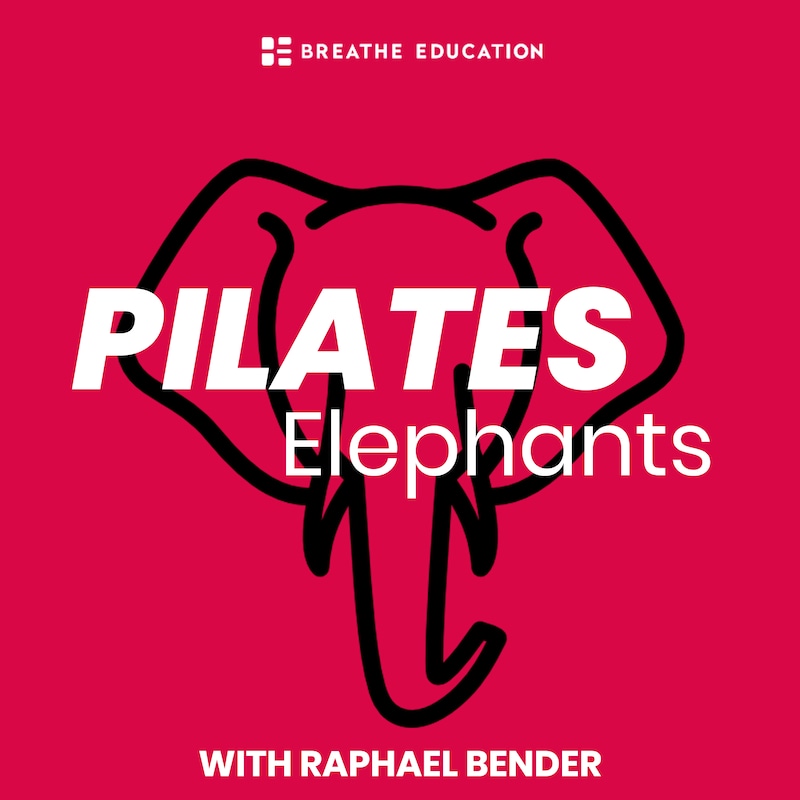In this episode, we’re talking about the question of ‘no pain no gain’ and whether the old saying is true. Is it really important to get sore during and after your workout to have an effective workout? And if you don't suffer from Delayed Onset Muscle Soreness (DOMS) was your exercise even worth doing? We discuss strength training and muscle damage, and why DOMS isn’t muscle damage but is related to that damage. I (Raph) also look at the evidence into why it’s essential to ensure that you have enough protein in your diet to repair your muscles after exercise.
What You Will Learn:
- Why feeling Delayed Onset Muscle Soreness isn’t an indicator of how effective your workout was
- How Delayed Onset Muscle Soreness slows the speed of muscle repair because of energy expended repairing the damage that you caused by working out.
- Why it’s such a common misconception that muscle growth equals damage
- The importance for building strength of having sufficient protein in your diet
- Why Cloe’s thinking has done a dramatic shift and how she plans to change going forward
No Pain No Gain
On the show, we dive into why this myth is still at the forefront of people’s minds when they are evaluating how effective their workout is. We discuss what exactly Delayed Onset Muscle Soreness is, how long they last, and why there is no correlation between muscle soreness and post-exercise cell damage. Raph also explains the anatomy of our muscles and how their make-up affects efficient strength training.
Strength and Diet
We want to debunk the common misconception that muscle growth equals damage. Which is why you need to counteract that by eating protein after your workout. The relationship between strength and conditioning training and eating the correct diet is also vital to understand. If you work out effectively there is muscle protein synthesis, the building of proteins within the muscle increases. The more actinomycin you pack inside your muscles, the wider the cells get, and the more contractile force you can generate because you’ve got more units.
Muscle Repair
It’s pretty clear that it’s better to exercise and get muscle soreness, than not to exercise at all. When you work out it stimulates your muscles to get stronger, so when you get sore after exercise it’s a good indicator that there was muscle damage. In getting stronger, you have to build more proteins within those fibers but current scientific thinking is that the process of repair is actually slowed down by Delayed Onset Muscle Soreness.
Resources mentioned in the episode:
- Exercise-induced muscle damage, when it is only moderate, may contribute to hypertrophy, or then again maybe it doesn't here
- Mechanical tension is the main stimulus for muscle strengthening, not activation here
- Training to failure does not enhance strength more than stopping before failure here
- Stopping as soon as you start to slow down gives the same strength gains as pushing closer to failure here
- Fatigue is not a necessary stimulus for strength gains here
- In fact stopping before you hit failure leads to greater strength gains here
- The duration of soreness after a workout is not an indicator of whether you're recovered or not, here
- DOMS is caused by unaccustomed exercise including longer muscle lengths or eccentric components here
- DOMS probably interferes with strength gains here
- DOMS is not a good indicator of whether your workout was effective here
- The repeated bout effect means that as you get used to a particular workout it causes less and less soreness here
- Protein supplementation is protective against DOMS here
- Ice baths don't reduce actual fatigue, but they make you feel better. Oh, and they may reduce strength gains from training here
- Massage is the most effective way to reduce DOMS once you have it here
Connect with me on Instagram: @the_raphaelbender
Download a free course guide:
Become a Breathe Education Mentor Affiliate: Program info
Mentioned in this episode:
Get 1:1 coaching with me to grow your studio
Get 1:1 coaching with me to grow your studio
This podcast uses the following third-party services for analysis:
AdBarker - https://adbarker.com/privacy



